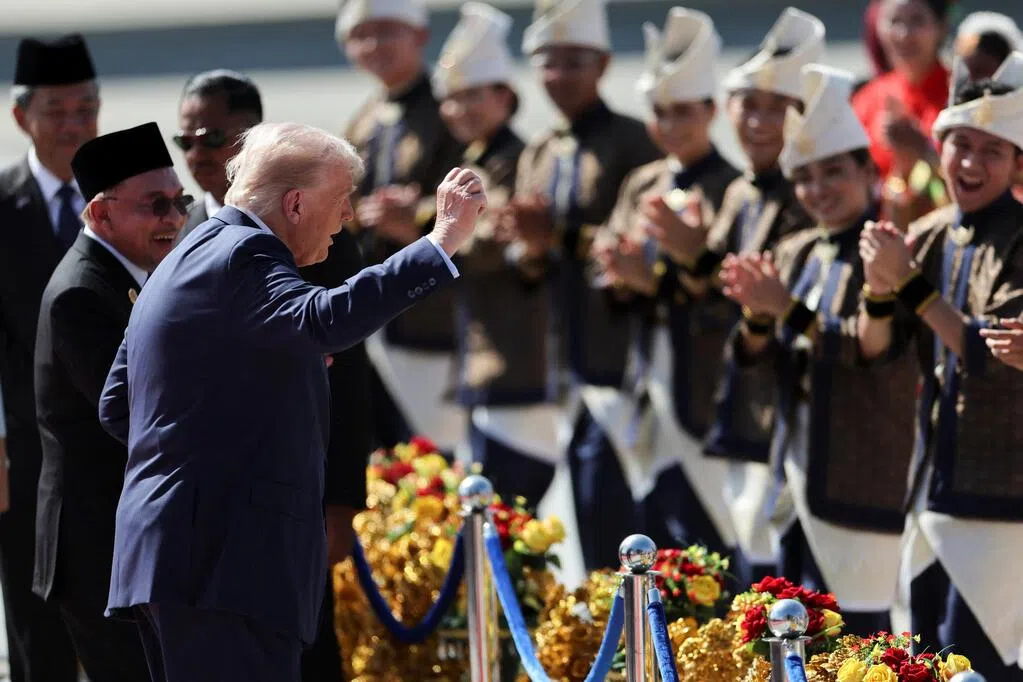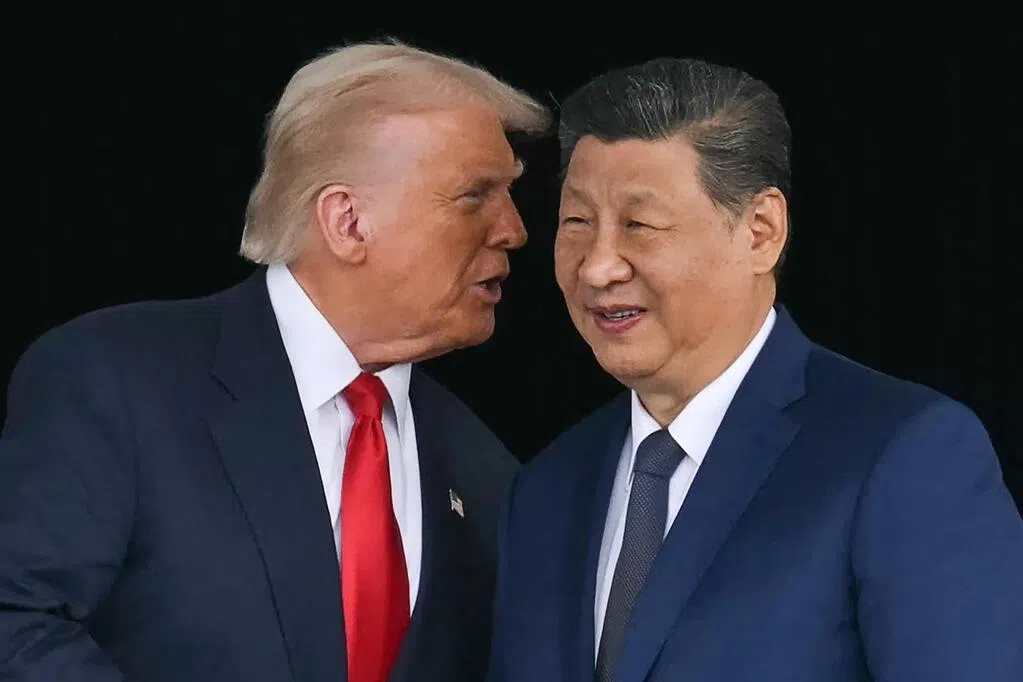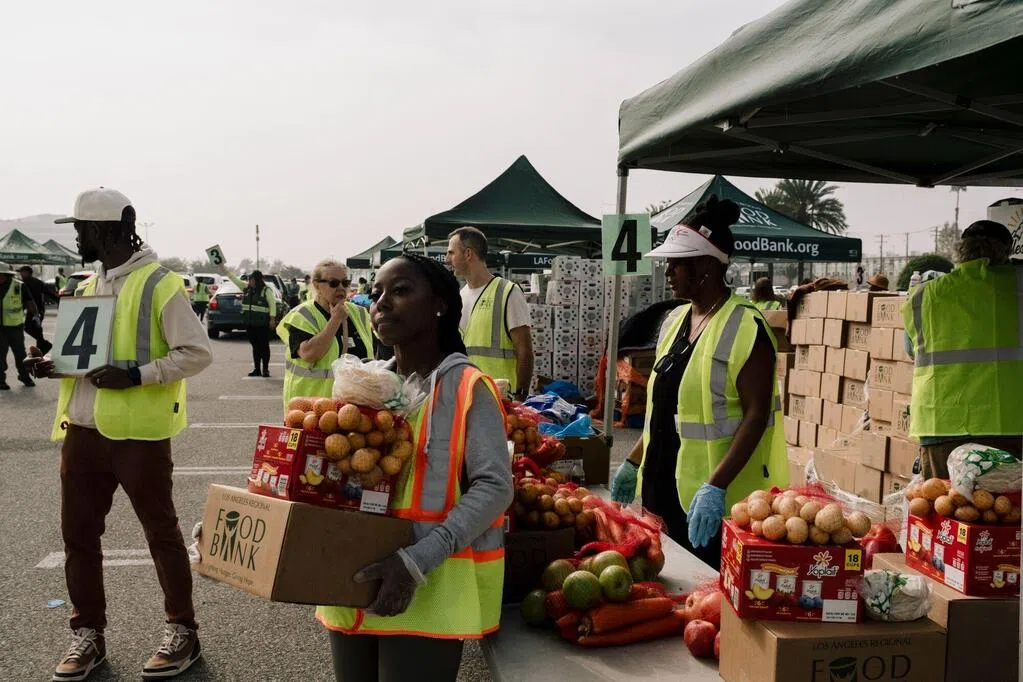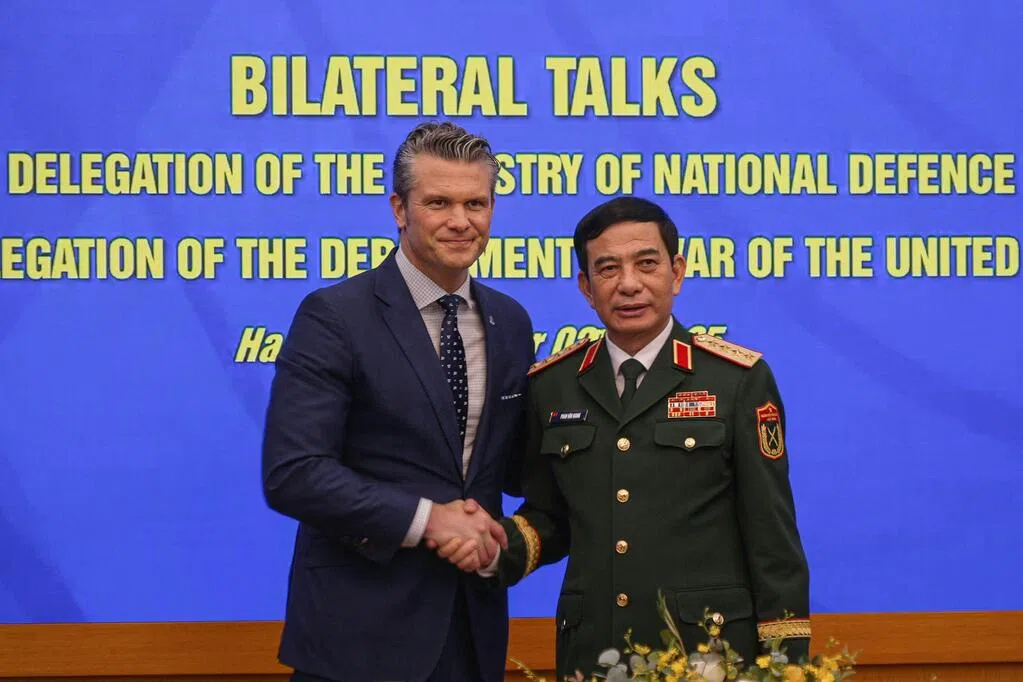(Washington, D.C.) U.S. President Donald Trump indicated that Chinese President Xi Jinping understands the consequences of a Chinese invasion of Taiwan, but he declined to explicitly state whether the U.S. would protect Taiwan.
CBS broadcast an interview with Trump on its "60 Minutes" program on Sunday (November 2). Trump said that the Taiwan issue was not mentioned at the Xi-Trump meeting last Thursday. When asked if he would order the U.S. military to defend Taiwan if China took military action, Trump refused to reveal specific countermeasures, only saying, "If it happens, you'll know. And he (Xi Jinping) knows the answer."
Trump also said he couldn't reveal secrets. Trump claimed that Xi Jinping and other Chinese officials had assured him that no action would be taken during his term to achieve the goal of reunification across the Taiwan Strait, "because they know the consequences."
Trump gave the interview last Friday at Mar-a-Lago in Florida. Regarding U.S.-China trade relations, Trump pointed out that maintaining good relations between the two countries is crucial. "I think it's important that the U.S. and China have a good relationship, and the high-level relations between the two countries are very good."
However, he added that Nvidia's most advanced chips will only be supplied to American companies and will not be exported to China or other countries. Further Reading


Nvidia CEO Jensen Huang said last Friday that he hopes to sell the company's most advanced Blackwell series chips to Chinese customers in the future. Under export control regulations implemented since 2022, such sales require prior approval. Huang said Nvidia has not yet applied to Washington for a license to sell Blackwell chips to China.
According to CNBC, when asked, Liu Pengyu, a spokesperson for the Chinese Embassy in Washington, did not directly respond to whether Trump had received any assurances from Xi Jinping or Chinese officials regarding Taiwan. He emphasized that China will never allow anyone or any force to separate Taiwan in any way, and stated that the Taiwan issue is China's internal affair, and how to resolve it is China's own decision.
Trump Claims Russia and China Conduct Secret Nuclear Tests: The US Will Follow Suit
On the other hand, in a CBS interview, Trump said that countries like Russia and China are secretly conducting underground nuclear tests, and therefore the US will follow suit.
Trump said, "Russia is conducting nuclear tests, China is conducting nuclear tests, but they don't talk about it. We don't want to be the only country that doesn't conduct nuclear tests."
China denied Trump's accusations. Chinese Foreign Ministry spokesman Mao Ning said on Monday that China has always adhered to the path of peaceful development, pursued a policy of no first use of nuclear weapons, maintained a self-defense nuclear strategy, and upheld its commitment to suspending nuclear tests.
It is understood that the United States conducted 1,054 underground nuclear tests between 1945 and 1992, and ceased nuclear testing in September 1992. Russia's last nuclear test was in 1990, China's in 1996, and North Korea's in 2017.
U.S. Energy Secretary Wright said in an interview with Fox News on Sunday that the nuclear weapons tests ordered by Trump will not involve nuclear explosions at this time.
Wright stated that the U.S. is talking about system tests, not nuclear explosions. "These are what we call non-critical explosions, so it's testing all the other components of the nuclear weapon to ensure they are functioning properly and can trigger a nuclear explosion."
Wright also said that these tests will be used on new systems to ensure that the replacement nuclear weapons are more advanced than previous ones.
He further pointed out that the United States conducted nuclear tests in the 1960s, 1970s, and 1980s, collecting detailed information and measurement data. The United States can now use its scientific and computational capabilities to simulate the entire process of a nuclear test with extreme precision, and predict the consequences of altering nuclear bomb designs.



